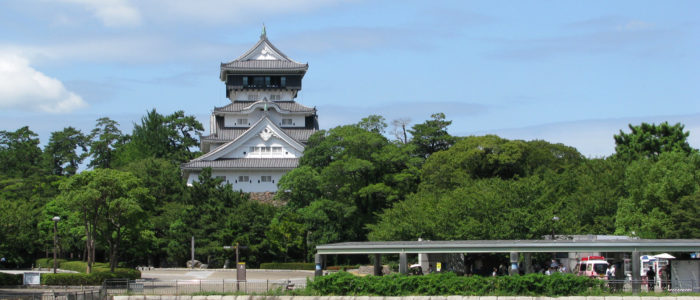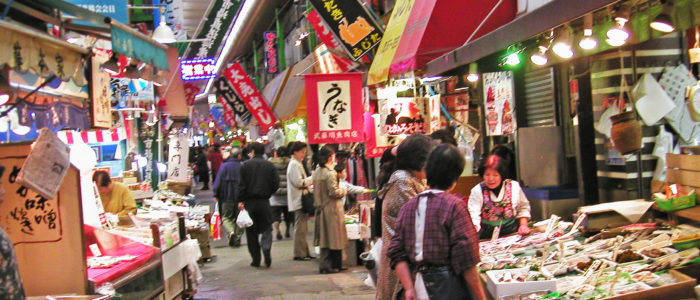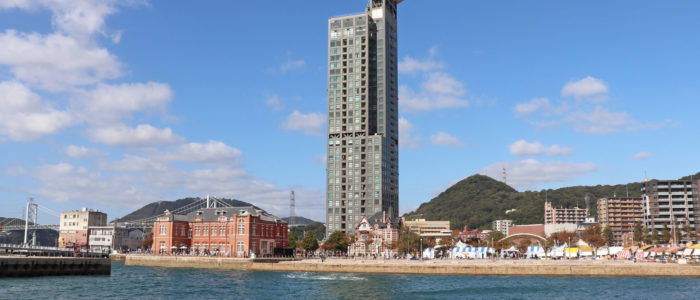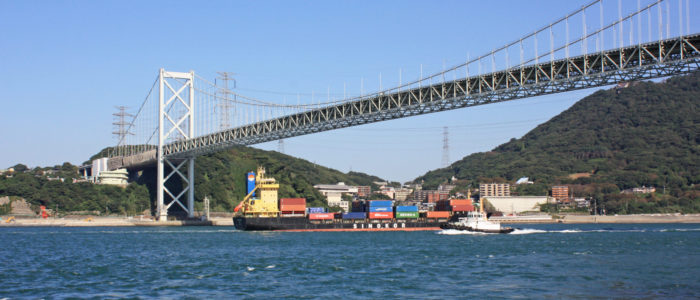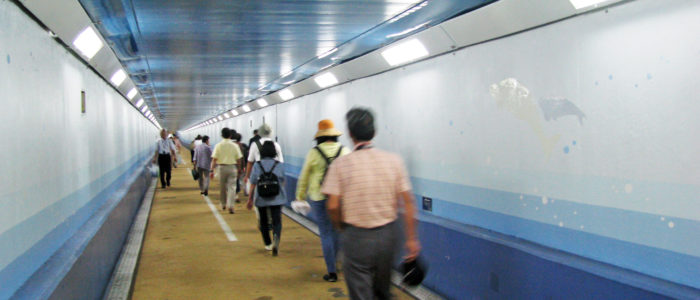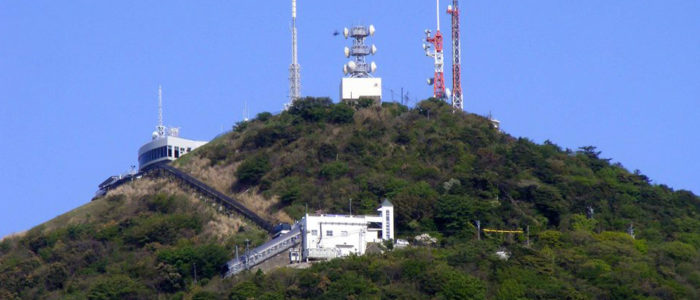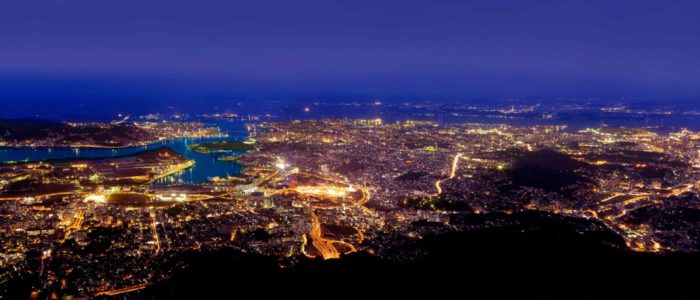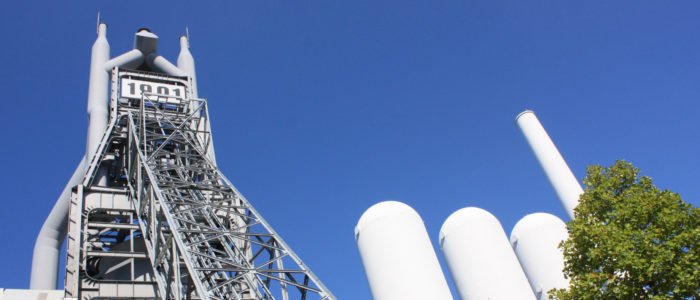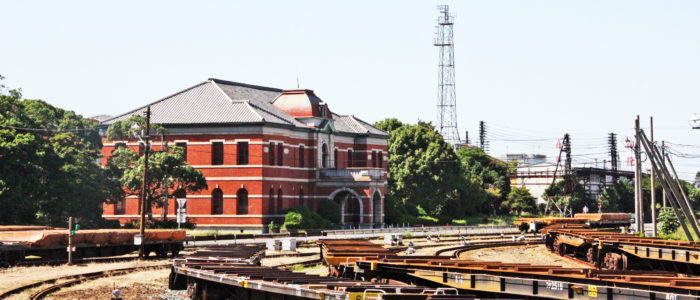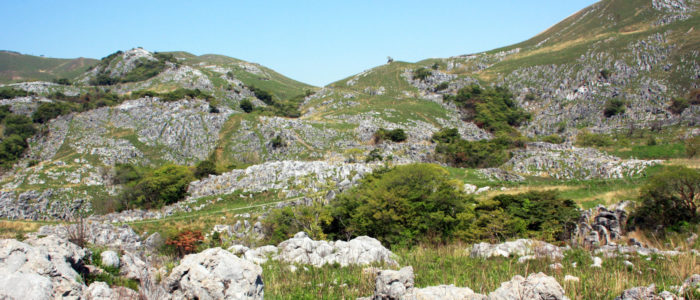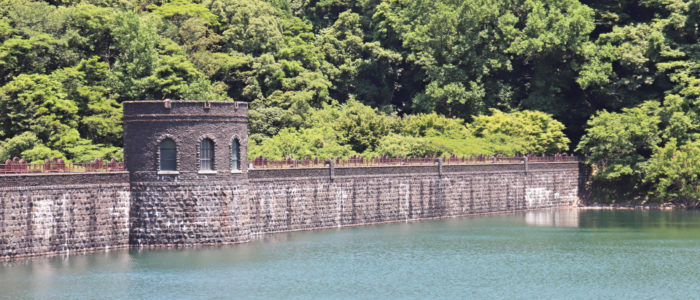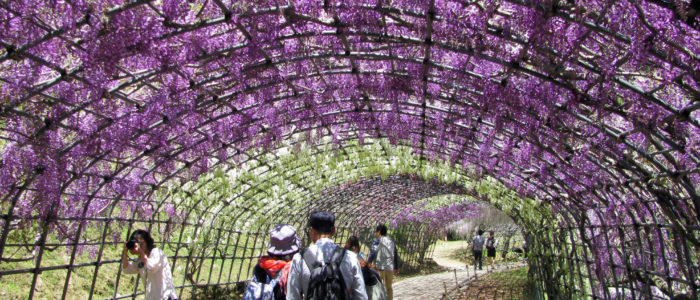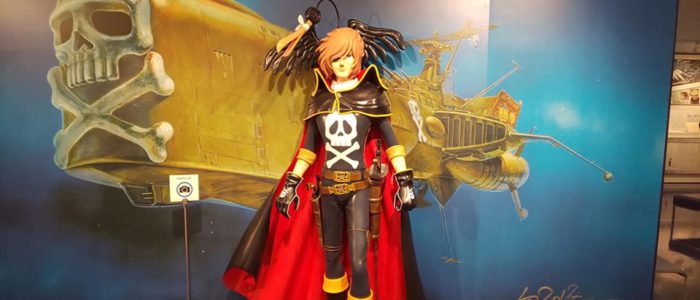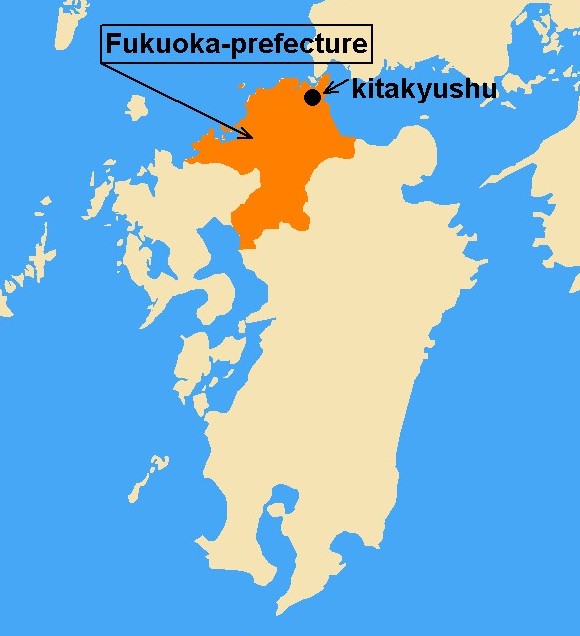Kitakyushu travel guide
This Tourist information has been created by Japan KYUSHU Tourist to assist
with your travels.
We are a travel agency in Fukuoka specializing in Kyushu, Japan.
When you are planning a trip to Kyushu, please feel free to contact us by sending
an Enquiry.
Kitakyushu is the second-largest city in Kyushu, located at the island’s northern tip.
As the gateway between Kyushu and Honshu, it has long been a vital hub for
industry, shipping, and land transport.
In 1901, Kitakyushu was chosen from 17 candidate sites across Japan to host the
nation’s first modern steel works. Since then, the city has greatly contributed to
Japan’s industrial modernization.
Today, Kitakyushu possesses numerous natural wonders and tourist attractions.
These include Mt. Sarakura, which offers one of the most spectacular and
dynamic night views in the world.
Visitors can also explore the historic castle town of Kokura to experience
traditional Japanese culture, the Mojiko Retro district overlooking the beautiful
Kanmon Strait, and the industrial heritage of Yahata – the birthplace of
Japan’s steel industry.
Where to Explore
Kokura area
| Kokura Castle | |
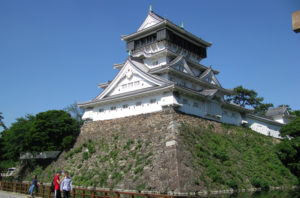 |
Kokura was the transportation hub from Honshu and all areas of Kyushu during Edo period from 17th to 19th century. The Castle town was constructed in the Kokura and Kokura Castle was build in 1602 and spent 7 years construction at the north side of Kokura facing to Kanmon strait and next to Murasaki river. The height of Castle tower is 6th tallest in Japan after Himeji Castle. |
| Kokura Castle Garden | |
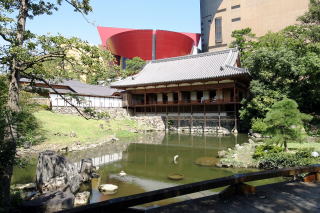 |
Beautiful Japanese garden with traditional Japanese architecture. The building was made for the lord’s guest house which a building of the style of Japanese domestic architecture, located next to Kokura Castle. You can enjoy the Tea Ceremony in the Japanese traditional architecture.
|
Moji area
Moji is the beautiful port town and facing to Kanmon Strait where one of the most
beautiful Strait in the World. On the other side of the Kanmon Strait is Shimonoseki,
more than 500 ships are passing through the Strait everyday.
Moji Port designated as a Japan’s special trading port in 1889.
| Mitsui Club | |
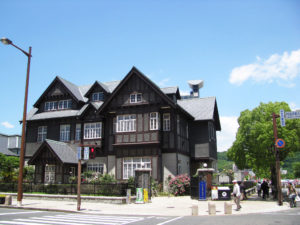 |
It was built by the Mitsui Co., Ltd in 1921 as a reception centre and to provide accommodation for VIP’s. Albert Einstein (1879-1955), one of the world’s most famous theoretical physicists, stayed here during his visit to Japan with his wife in 1922. |
| Kaikyo Plaza | |
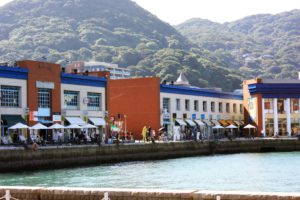 |
The shopping area in the Mojiko Retro district located by the sea. “Full of a romance market which stir up forgetting contentment” is the direct translation of the concept Kaikyo Plaza is based on. The area has a very romantic ambience and evokes feeling of nostalgia and contentment that will never be forgotten. |
| Mojiko Station | |
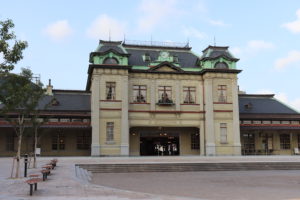 |
It is the only Station building that is designated as an Important National Cultural Property together with Tokyo Station. Mojiko Station is a beautiful station built in the Renaissance style and modeled on the Termini Station in Italy. |
| Mojiko Retro Observatory | |
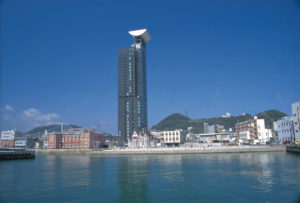 |
Situated on the 31st floor of the high-rise apartment building “Retro Hi-Mart”. The 103 metre-high observatory offers magnificent views of the Mojiko Retro district, the Kanmon-kyo Bridge over the Kanmon Strait, as well as the Shimonoseki area. |
| Konamon Pedestrian tunnel | |
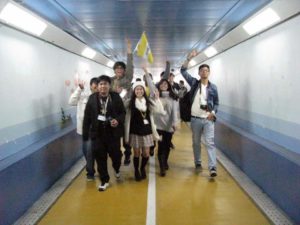 |
Only the place in the world ! You can cross the strait on foot. The Kanmon Strait, separating Honshu and Kyushu, is a very beautiful and busy waterway with as many as 700 small and large ships a day passing through it. the Kanmon Pedestrian Tunnel, which enables people to cross on foot, |
Higashida area
Japan’s modern steel industry was started as Yawata steel Works at Higashida district
in 1901. Since then, the Works greatly contributed to Japan’s industrial modernization.
The three sites in Higashida have been registered on UNESCO World Heritage as
Sites of Japan’s Meiji Industrial Revolution.
| Higashida No.1 Blast Furnace | |
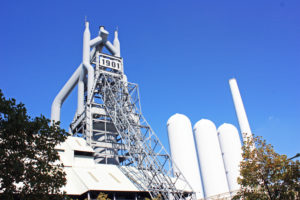 |
Blast Furnace is a Steel plant for making the pig iron from iron ore and coke. Higashida No.1 Blast Furnace is only the Blast Furnace in the world which preserved as it was. The birth place where Japan’s steel industry began in 1901. It contributed greatly to the development of the Japanese steel industry and was used until 1972, and has been preserved just as it was. |
| First Head Office of the Steel Works / UNESCO World Heritage | |
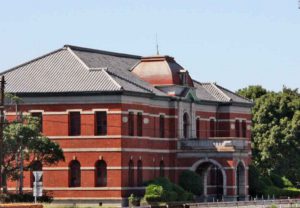 |
The the building for the Head office of the Imperial Steel Works was constructed in 1899, two years before commencement of Japan’s Steel Industry. The design of the building is a harmony of European and Japanese architectural styles. The construction of the structure below the roof is a European style and uses red bricks for the outside walls. Aiming to symbolize a Good future for Japan, the roof was designed with a traditional Japanese triangular shape and Japanese tiles were used to complete the roof. |
Industrial Heritages
| Kawachi Reservoir | |
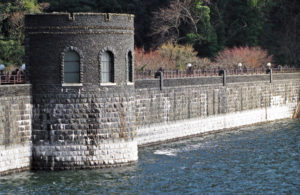 |
The first-class civil construction heritage completed in 1927, The Kawachi Reservoir was constructed for the industrial water supply to Yawata Steel Works. The dam was constructed at the Okura River and upper stream of the dam was expanded and making the 7milion cubic metre reservoir |
| Minami Kawachi-bashi bridge | |
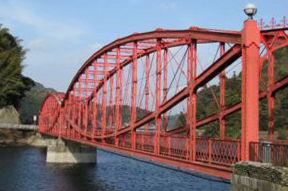 |
The only remaining lenticular truss bridge in Japan
( lens type truss bridge), located at the south side of Kawachi
Reservoir and it was designed by Hisanori Numata. This shape
and color really harmonize with nature and become a symbol of
the Iron town Yahata.
|
| Onga River Pump Station / UNESCO World Heritage | |
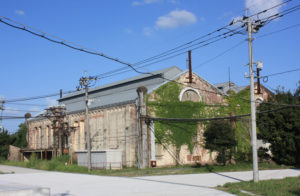 |
Built in 1910 on the east bank of the Onga River. It served, and still serves, to deliver industrial water to Yawata via an 11.4 km pipeline. The site has been registered on the UNESCO World Heritage, |
| Kurogane Railway | |
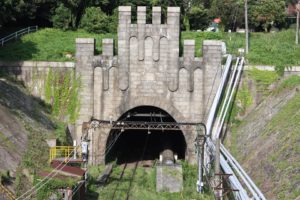 |
Dedicated Railway for Yawata Steel Works. The railway connected between Yawata and Tobata, completed in 1930. The most difficult and hard work was making Miyatayama tunnel with a total length of 1180 m due to suffering from floods. The gates of the Miyatayama tunnel are decorated with stately designs. |
| Yahata port | |
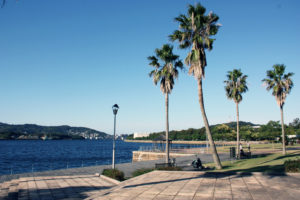 |
Japan’s Modern Steel Works history started here. Yawata was a rural village with a small population of agriculture and fishing industry. And this place was decided in Parliament as the Japan’s Modern Steel Works construction site in 1897. |
| Mount Sarakura, the most dynamic night veiw in the World | |
 |
The height of the mountain is 622 meters level. At the top you are presented with a magnificent and spectacular view of Kitakyushu. In 10 minutes, you can reach the summit from the Cable Car Station using the Cable car and the Slope car. We offer the most dynamic night view in the World that you never seen before. |
| Hiraodai Karst Plateau & Caves | |
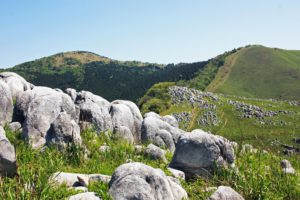 |
One of the three largest Karst Plateau in Japan. It is located in southeastern part of Kitakyushu-city. At altitudes between 400 and 600 meters above sea level and stretching 6 km from north to south and 2 km from east to west. |
| Kawachi Wisteria Garden | |
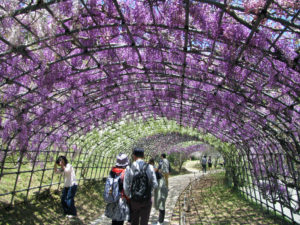 |
Kawachi Wisteria Garden is a private garden at the Mountain foot of Sarakura and famous for its spectacularly presented, large numbers of wisteria flowers. The garden is opened to the public seasonally during the wisteria season which usually peaks around late April to middle of May. |
Others
| Manga Museum and Aru Aru City | |
 |
Manga Museum is located next to JR Kokura station. The museum is located on the 6th floor of Aru Aru City, a multi-floored shopping mall devoted to products and services for anime, manga, idol culture, and cosplay fans, a kind of Harajuku in miniature. |
Kitakyushu
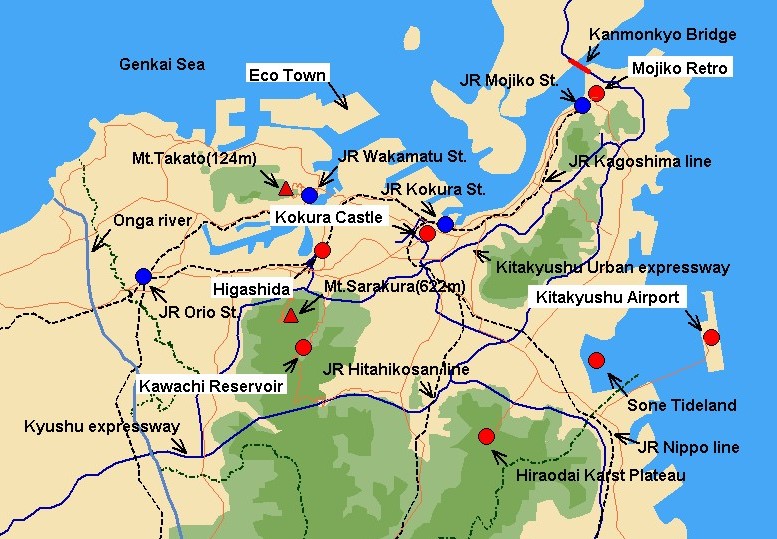
Home Customized Private tour Christian Pilgrimage tour Golf tour What our Guests have to say

